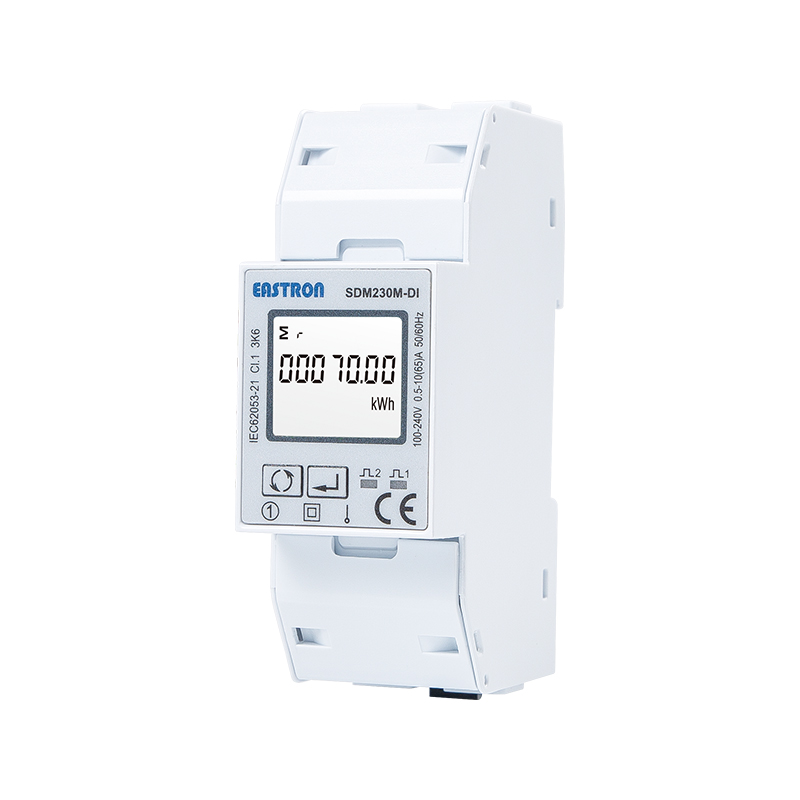Product Consultation
Your email address will not be published. Required fields are marked *
In the fields of electrical engineering, facility management, and energy auditing, accurate measurement devices are essential for monitoring system performance, managing loads, and optimizing consumption. Two terms that often arise in this context are “power meter” and “energy meter.” Though closely related, these two instruments serve distinct purposes and should not be confused.
Basic Definitions
Power Meter
A power meter is a device that measures the instantaneous power being consumed or generated by an electrical load or system. Power is typically measured in watts (W), kilowatts (kW), or megawatts (MW), depending on the application scale.
Energy Meter
An energy meter, by contrast, measures the cumulative electrical energy used over time. Electrical energy is the product of power and time and is measured in kilowatt-hours (kWh), megawatt-hours (MWh), or similar units. These meters are also referred to as electricity meters or kilowatt-hour meters.
Measurement Principle
Power Meter
Measures real-time power: active power (kW), reactive power (kVAR), and apparent power (kVA).
Capable of showing rapid fluctuations in electrical demand.
Often used to monitor load conditions, power factor, and system efficiency.
Typically based on root mean square (RMS) voltage and current calculations over short intervals (such as seconds or milliseconds).
Energy Meter
Integrates power usage over time to calculate energy consumption.
Records how much energy has been consumed since a given point in time (such as the last billing cycle).
Typically resets monthly for billing or periodically for reporting, depending on application.
Uses internal time integration algorithms to convert instantaneous power readings into accumulated energy data.
Display and Output
Power Meter
Displays live values of current, voltage, frequency, power, and often power factor.
In advanced models, may provide waveform data, harmonic distortion, or transient detection.
Frequently used in SCADA systems and energy monitoring dashboards for real-time insights.
Energy Meter
Primarily displays cumulative energy in kilowatt-hours.
May include a rolling counter or digital display.
Some smart energy meters also show instantaneous power, voltage, and current, but this is supplemental.

Applications and Use Cases
Power Meter Applications
Electrical panel diagnostics in commercial and industrial facilities.
Real-time load balancing and generator output monitoring.
Power quality analysis including voltage dips, harmonics, and power factor.
Preventive maintenance and overload detection in critical power systems.
Energy Meter Applications
Utility billing for residential, commercial, and industrial consumers.
Sub-metering in multi-tenant buildings and energy audits.
Energy performance tracking in accordance with ISO 50001 or other energy management standards.
Renewable energy systems for calculating energy generated (e.g., solar or wind output over a period).
Time Dependency
Power Meter
Measures what is happening now.
Not affected by cumulative consumption.
Results can vary every moment depending on load fluctuations.
Energy Meter
Measures what has happened over time.
Captures total energy used since the start of a recording period.
Useful for evaluating cost, efficiency, and long-term performance.
Instrument Type and Complexity
Power Meter
More complex, often microprocessor-based.
Equipped with advanced electronics capable of analyzing waveform, phase angle, and vector relationships.
Often includes communication protocols such as Modbus, Ethernet, or BACnet for integration with Building Management Systems.
Energy Meter
Simpler devices in most cases, though modern models (smart meters) are also microprocessor-based.
Designed for long-term reliability and durability with fewer moving parts.
Includes memory for storing energy data and sometimes demand intervals or peak usage times.
Regulatory Standards
Power Meters
Typically comply with standards such as IEC 61010 for safety and IEC 61000 for electromagnetic compatibility.
May be evaluated under IEC 61557 for performance in power quality analysis.
Energy Meters
Must comply with metrological accuracy and reliability standards such as:
IEC 62052 and IEC 62053 series
ANSI C12.1 and C12.20 in the United States
EU Measuring Instruments Directive (MID) for legal-for-trade applications
Hybrid Devices: Power and Energy Meters in One
Many modern digital meters combine the functionalities of both power and energy meters. These multifunctional devices are capable of real-time monitoring and cumulative recording. In industrial and commercial applications, such meters offer:
Real-time power analysis (W, VA, VAR)
Total harmonic distortion (THD)
Energy consumption tracking (kWh, kVARh)
Power factor and load profiling
Data logging and remote communication
However, such hybrid devices are often still referred to based on their primary application. For example, a utility-grade energy meter with added features may still be called an energy meter, while a high-speed waveform monitor with energy integration may still be sold as a power meter.
While the terms power meter and energy meter are sometimes used interchangeably in casual conversation, they represent different measurement focuses in professional electrical monitoring.
Power meters are about the present: they provide insights into real-time electrical conditions, useful for operational monitoring and load management.
Energy meters are about the past: they show how much electricity has been consumed over time, essential for billing, cost control, and historical analysis.
Understanding this distinction is essential when specifying meters for a project, comparing equipment for purchase, or designing energy-efficient systems.
Your email address will not be published. Required fields are marked *
We develop and produce high performance electricity meters, power analyzers, current sensors, communication modules and management systems. China Custom Smart Meters Manufacturers and Factory
Address:NO 52, Dongjin Road, Nanhu, Jiaxing, Zhejiang, China
Copyright @ Eastron Electronic Co., Ltd. All rights reserved Electricity Meters Manufacturers
